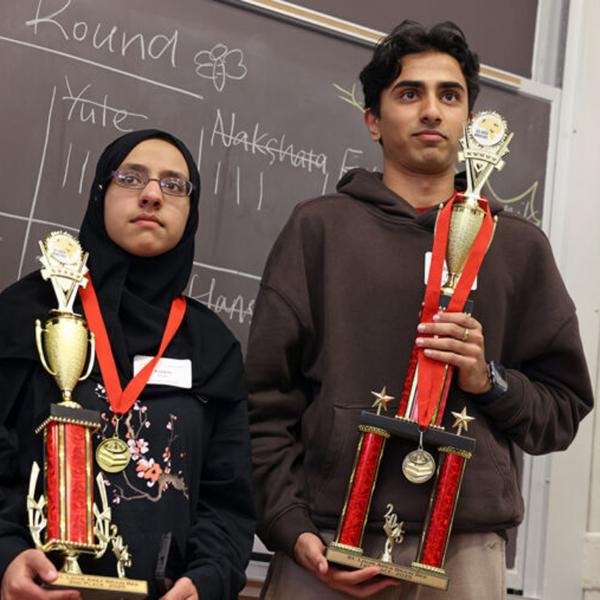Eight Arts & Sciences graduate students were honored for their achievements in undergraduate teaching and instruction.
Arts & Sciences recently announced the recipients of the annual Dean's Awards for Teaching Excellence. Graduate students from a range of departments and programs were selected for their exceptional contributions in the classroom.
“These winners represent some of the most distinguished examples on campus of graduate student engagement with undergraduate learning,” said William Acree, associate vice dean of graduate education. “All of these awardees received resounding endorsements by both their students and faculty mentors, and we in the Office of Graduate Studies are thrilled to celebrate this next generation of leaders in the classroom.”
Recipients were selected through a departmental nomination process that required support and input from multiple members involved in the teaching mission. Among the many achievements and approaches nominators highlighted were inclusive pedagogy and commitment to student success; the development of a classroom environment that welcomes diverse opinions, learning styles, and life experiences; lively and enthusiastic teaching that kept students engaged with course content and conversations; creativity in course and assignment design; and collaboration with faculty and other graduate students throughout the semester. Awardees each received a $1,500 prize and a certificate.
“Graduate students are a critical part of the 'fabric' of Arts & Sciences, serving as assistants in instruction, and having the facility to work with both faculty and undergraduate students alike,” said Sophia Hayes, vice dean of graduate education. “It’s terrific to have this opportunity to acknowledge teaching excellence as it is a core part of their training as scholars. We are fortunate to have such a dynamic and engaged group!”
2022 Award Recipients
Kaché Claytor, Romance Languages and Literatures
Claytor was commended for her inclusive and innovative pedagogy, her ability to create an inclusive classroom and to establish excellent rapport with students, and how she offers space for even the quietest students to remain engaged and learning.
Josh Covey, PhD '22, Mathematics and Statistics
Nominators mentioned the extensive effort Covey put in to help students succeed, the way he creates an atmosphere that helps students practice their skills in a low-pressure environment, and how he encourages students to share their ideas with one another.
Charlotte Fressilli, English
Nominators cited her “exhaustive preparation and empathetic creativity,” her ability to offer materials that help students see concepts in new ways, and how she is able to memorably and vividly explain weighty 20th-century theoretical and historical concepts.
Julie James, Art History and Archeology
Nominators mentioned her subtle and successful navigation of classroom conversations, willingness to immerse herself in new material, long-term commitment to becoming a better instructor, and her personal attention and care for her students during the pandemic.
Adalee Lube, Biology / Neuroscience
Lube was praised by nominators for her clarity, organization and professionalism; her inclusion of active learning exercises and student input; and the way she sets a tone for students to feel safe and confident speaking up.
Gabrielle Pfund, Psychological & Brain Sciences
Nominators called Pfund prepared, patient and resourceful, and mentioned her creation of new systems to help the classroom run smoothly during the pandemic. They also cited her personal care and concern for students struggling academically and personally.
Elodie Tantet, Romance Languages and Literatures
Nominators mentioned Tantet’s zeal, creativity, and self-confidence; her committed attention to her students; her beautifully orchestrated discussions; and her creative ideas to improve the variety of media and sources used in class.
Grace Ward, Anthropology
Ward was commended as a “superlative educator” for her student-centered and collaborative structure that encourages critical thinking, her ability to connect seemingly unrelated areas of content, and her capacity to convey information as well as knowledge.




